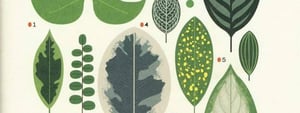In his book “The nation of plants”, the neurobiologist Stefano Mancuso, head of the international Laboratory of Plant Neurobiology at the University of Florence, encourages us to forget about the anthropocentric point of view on which our culture is based.
People believe that, thanks to our brain, we can do extraordinary things that no other species can do. We have the deeply-ingrained idea that we are at the peak of evolution, as well as by far the most important and perfect beings that live on our planet. And this, according to Mancuso, is profoundly wrong.
It is wrong for biological reasons. The aim of life is the propagation of the species. A species lives on earth for an average of 5 million years. We homo sapiens have only been here for three hundred thousand years. Therefore, we are certainly not the best.
Our ability to survive is very low. And this is due to how we are organized. We animals build centralized, hierarchical, pyramid-like organizations. Each organ has its function and is fundamental. We build organizations that are the exact replica of how we are made.
In fact, pyramid-like organizations are fragile: it is enough to remove just one critical component to make the whole thing collapse. This hierarchical chain makes us weaker as a species. Hence we must learn what we need to do to survive from all the other species. And from plants, in particular.
Plants do not have centralized, specialized organs like we do. Their organization is widely distributed: they see, hear, breathe and reason with their entire bodies. This makes them much more robust than we are.
As we pointed out in another article, plants are not individuals, but rather a network. A forest is a single organism: it is not made up of a large number of individuals, but a network of plants that are interconnected through their roots, which they use to exchange information, in a genuine “mutual support network”.
If you think about it, theirs is the model we used to build the internet: the web has a wide, horizontal structure, which can never be completely blocked.
In addition to the way we are organized, Mancuso highlights another important critical element: we are the only species that destroys its environment. Homo sapiens is a super-predator: we destroy the environment we live in, just like certain poorly-evolved viruses.
By triggering global warming, we have set in motion a series of environmental consequences that are unpredictable.
The fact is that we are not separate from nature (an idea that dates back to the philosopher Descartes) and we need all other living species to survive: if a species becomes extinct, we reduce our chances of survival.
Plants teach us to cooperate, not to compete. It is only with cooperation that we can save ourselves. Cooperation is the great driving force of the planet’s evolution – because that is how life is preserved and is propagated.

